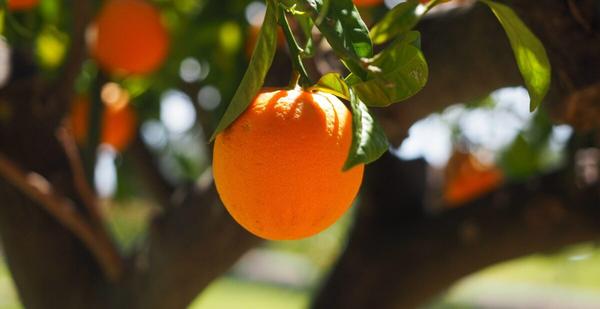Would you eat an orange that has black spots on the skin?
There is a global plague that threatens orange growers in Spain. This is the "black spot", a disease caused by a fungus (Phyllosticta citricarpa) that currently infects orange trees on all continents except Europe.
But the fungus is not as evil as one might imagine. It does not end the life of the orange trees. Nor does it decrease production or make the fruit inedible. The only thing it causes are, as its name suggests, some black spots on the skin of the orange that make it "ugly".
"Damaged" oranges cannot be sold for fresh consumption because consumers would not accept them, so orange growers would have to adapt their production to the juice industry, at high cost.
JOIN OUR COMMUNITY!
Because the taste of the public for one or another food has consequences throughout the chain.
But would we really reject those "spotty" oranges if they were put on the table? The sad reality is that yes.
And would you eat some white eggs?
It is a common tonic in the food world. There are many products that, due to perception or culture, the public rejects. For example, white eggs have not been seen in supermarkets for years.
Because? The reason is that in Spain the white egg is seen as more "artificial". On the other hand, the brown-shelled egg has a more "countryside" appearance.
But despite its fame, it has been more than proven that the only difference is the color of the shell: the nutritional quality of the food is exactly the same.

But the reality is that for this reason alone we find that brown egg farms sell their production for direct consumption, while white eggs are sold for other industries such as pastries.
food in the trash
They are not the only cases. There are worse.
There are many foods that do not have competitive alternatives to direct consumption. It can also happen that a food has suffered damage in the transport chain. And in many of these cases the food ends up directly in the trash.
And it's not just a nutritional issue. It is also an ecological problem.
We live in a world where food production causes up to a quarter of all global emissions. It is also the main factor in soil erosion. And for this reason, to take care of the planet, it is not convenient to throw away food that costs so much to produce.
possible solutions
What would be the solution to this waste? It is not an easy subject to address.
There are those who propose reducing the price of these less attractive or damaged foods.
According to some studies, it would be the way to make more consumers decide to buy these foods. And, in addition, many of them have a high nutritional value and are not within the reach of all pockets, so it would be a good formula to promote the health of the most disadvantaged people.
It is one of the conclusions of a Spanish investigation regarding the purchase of potatoes, which according to the article published in the magazine Sustainability, is "the product that is wasted the most in the food chain."
But things are never that simple. And for many analysts this movement could cause a general fall in prices, which is unacceptable for a sector that is already drowning.
The field has been suffering for many years. It should be remembered that during the citrus harvest in the 2018-2019 season in Spain, a large part of the fruit remained on the tree. And the reason was as simple as that the sale prices were not even enough to pay the collectors. And it is not a way of speaking, but a reality.
Another solution that has been proposed is to try to change the opinion of citizens about these foods, and that they consume them calmly.
But if it's already hard to convince everyone that vaccines are better than disease, let's imagine changing their consumption habits and getting them to eat ugly things.
And if we eat more than ours?
Given this difficulty, perhaps the best thing to do is to buy your own products.
Returning to the case of oranges, the origin of the fall in prices is the same that instills the fear of the black spot: the importation of fruit from foreign countries.
The increasing import of oranges from other continents, mainly from southern Africa, increases the risk of the appearance and spread of this disease in our country. There the disease is widespread and many of the shipments that reach our continent are infected.
The purchase from these countries is related to seasonality.
Thanks to globalization we can eat fresh oranges in August. But at the same time they are oranges with a more competitive price. They are produced with cheaper labor and without following the European Union standards regarding pesticides and herbicides.
The direct consequence is that orange growers in Europe have no choice but to lower their price.
In short, black spot is not a "serious" disease. But with the current model it would cause great economic damage in the orange industry, so the arrival of the fungus in our country must be avoided at all costs.
Surveillance must be very strict to prevent infected oranges from entering, in the same way that it must be done with any other product that could endanger the primary production of a country.
But in a world where there is still hunger, where many people have health problems due to malnutrition or significant nutritional deficiencies, with a lack of necessary vitamins and nutrients... it is essential that we avoid wasting food.
Oranges are just one example of this irrationality. It is worth reflecting on whether the current problems are such or whether, doing things differently, much less food would be wasted and we would have better fed people, with the consequent improvement in health and the many benefits that this would bring us.








1770